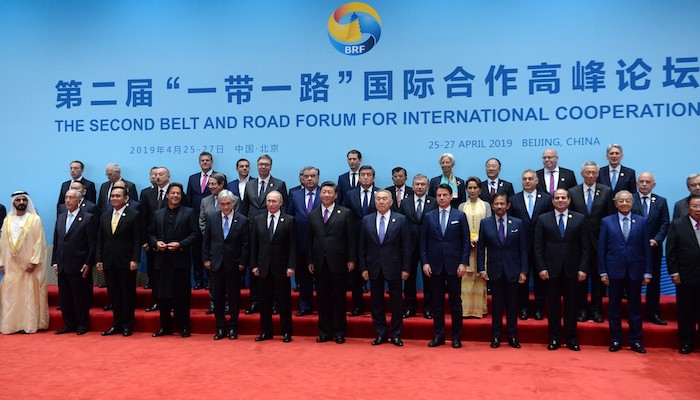ISTANBUL — China’s Belt and Road Initiative (BRI) came at the “right time” for boosting Africa’s development, a top African Union (AU) official told Nikkei Asia, as he played down concerns that it was a debt trap for poor countries.
Last week, Beijing said it would ramp up the decade-old infrastructure drive to build ports, roads and railways by pushing into the digital realm, as the multibillion-dollar program becomes China’s key foreign policy tool for influence in developing nations.
Chinese President Xi Jinping’s renewed focus on industrialization, agriculture and talent development was also just what the continent needs, said Albert Muchanga, head of trade and industry for the African Union Commission, the AU’s Ethiopia-based secretariat.
“China will continue BRI, at the same time there is a complementary effort to support us in those three areas. … Both came at the right time,” Muchanga said in an interview on the sidelines of last week’s Turkey-Africa Business and Economic Forum in Istanbul. “Africa was making massive investments in developing infrastructure, connectivity, telecommunication systems as well as energy facilities [when BRI launched] and that helped quite a lot.”
“We need to start the process of adding value on the continent to push industrialization,” added the former Zambian diplomat.
The G7, European Union and U.S. all followed with investment programs, Muchanga said, citing the “very significant” Lobito Corridor.
On the sidelines of last month’s G20 meeting in India, which Xi skipped, the U.S. and EU issued a joint statement that threw support behind the trade link connecting the Democratic Republic of the Congo (DRC) and Zambia to regional and global trade markets via Angola’s Port of Lobito.
“Huge potential for developing a thread among the three countries and exporting to the rest of the world,” Muchanga said of the investment. “There is going to be critical minerals, industrialization, agricultural transformation.”
The resource-rich DRC is home to nearly half of the world’s cobalt reserves, an essential component for making electric vehicles’ lithium-ion batteries, while neighboring Zambia is a major copper producer.
Asked if Western powers were being drawn to Africa in competition with China, Muchanga replied, “Well, they are reacting to it, which is good.”
He also questioned growing criticism that the BRI’s massive infrastructure loans and an opaque structure have saddled some recipient countries with unsustainable debt.
Some $76.8 billion worth of Chinese overseas loans were renegotiated or written off between 2020 and 2022, according to U.S. research firm Rhodium Group, compared to $17 billion in the preceding three years.
“When you discuss with the scholars from China and other people, I think there’s an acknowledgment that if we demonstrate greater transparency, I think some of the allegations that are made may not be well founded,” Muchanga said, without elaborating.
AU member nation ministers will gather in November to adopt a critical minerals strategy, the official said, adding that the commission is working on a document for approving its new leaders at a summit scheduled for February.
“We are responding to the issue of green transition by coming up with a critical minerals strategy,” he said, “but the message is to come and produce at source to contribute to decarbonization.”
